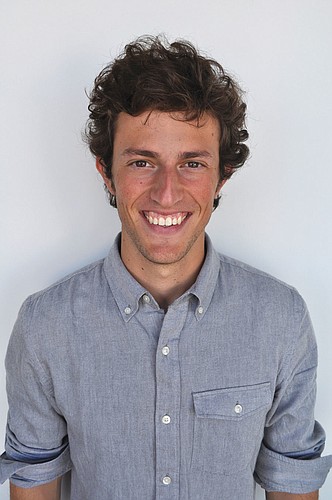- May 14, 2025
-
-
Loading

Loading

Josh Siegel graduated from FGCU in May 2012 and served as the school paper’s sports editor for two years. Here, he reflects on the men’s hoops team’s NCAA Tournament Sweet 16 run.
It was another Saturday on an empty Florida Gulf Coast University — this one in February 2011, when Dennis Jones, an older man with full head of white hair, slowly walked back down the steps to find his usual front-and-center seat at Alico Arena.
Jones, not a student, but a 60-something FGCU basketball season-ticket holder from Fort Myers, had just seen the Atlantic Sun women’s basketball champs win again earlier in the evening, and he debated not coming back to watch the men in the nightcap.
He stayed for the men’s game, not because he wanted to, but because he felt he had to, he later told me.
He, like few, stayed for the final home game in the last season of the team’s Division 1 transition.
FGCU men’s basketball team fell to North Florida, snapping the Eagles’ season-best three-game winning streak that qualified as hope.
Before now, before FGCU, in its first NCAA tournament appearance and second year of tournament eligibility, stole the hearts of America with a stylish and boyish Sweet 16 run that ended with a loss March 29, FGCU was no more than a goofy acronym with an on-campus beach full of sun-bathers who didn’t want to be there.
When Jones stayed to watch the men’s hoops team finish its last game of the last season, before coach Andy Enfield, the gap-toothed media darling with the model wife and NBA résumé, took over, he was breaking an unwritten FGCU “fandom” rule.
B.E. (Before Enfield) FGCU men’s hoops went 39-82 in almost four years of D1 play.
FGCU’s basketball stadium, Alico Arena — capacity 4,500 (and that’s including extra “upper deck” stands that stayed hidden behind mysterious blue curtains, never needed) — almost always hosts double-headers.
The women’s basketball team, which owns the NCAA Division I record for three-pointers in a single game (22), did the winning and earned the hearts of the elderly Naples\Fort Myers population.
The ladies would kick off the double-header in the early evening, make some threes and win, while groups of 70-year-olds would dance like Eagles and win free tacos, before trotting off happily to bed, before the men even played.
Students’ hearts weren’t there to be earned.
As recently as the 2009-10 season, FGCU’s men’s basketball drew an average of 288 students per game at Alico Arena.
I saw it as a self-conscious student body cloaked behind the nothingness of a campus without an identity.
When Jones endured that February and stayed to watch the men play, he did it because he knew only men’s basketball (FGCU doesn’t have a football team, and women’s hoops had small success but it didn’t resonate with the mainstream) could give FGCU an identity and recognition.
FGCU’s students were so desperate for identity and college-town school spirit they often used their school as a springboard — not to a job or career, but to another school.
Students would spend two years at FGCU, earn their general education credits, attend no sporting events, flock away from the campus on weekends (either to go home or bask in another, bigger school’s rollicking “college” life) and transfer to that more ideal school for their junior and senior years.
Last April, for a story, I asked 50 students to name FGCU’s president.
Only three students could identify our president, Wilson Bradshaw, by his full name.
Guesses at his first name included Conrad, Bradley, John and Terry.
It turns out, we learned late on April Fools’ Day, that Enfield also used FGCU as a launching pad, in this instance, for more money and status, when he bolted to USC April 1, for more than $1 million per year.
Enfield suffers from the same identity crisis.
But, above it all, in an upstairs office in Alico Arena where empty seats lingered below, FGCU Athletic Director Ken Kavanagh was plotting something big.
I interviewed Kavanagh, who came to FGCU after 13 years at Bradley University in the same position, as my first assignment for Eagle News, as a sophomore.
In Eagle News tradition, he would write his annual letter addressed to students for the back page of our paper, and I wanted to write the perfect intro.
We exchanged small talk about our shared Illinois roots, before Kavanagh told me he wanted the acronym FGCU to mean the same as UCLA.
My pen ran out of ink at that point. I didn’t ask to borrow another pen. I would remember this.
Kavanagh won’t hide from the challenge of hiring a successor to Enfield, finding that elusive someone who wants to be at FGCU and stay there.
So, when FGCU made its magical run these past two weeks in the NCAA tournament, with many of the same players the former coach could get nothing out of, and the suddenly enthusiastic students jumped on board, proud to be Eagles, I couldn’t help but think of the man above it all who chased identity instead of running from it, and the old man who waited to see it happen.
Contact Josh Siegel at jsiegel@yourobserver.com.